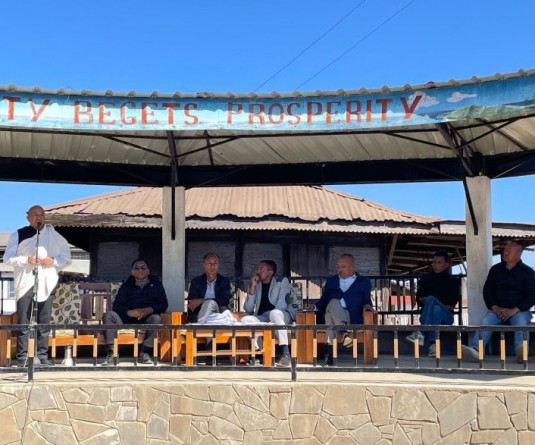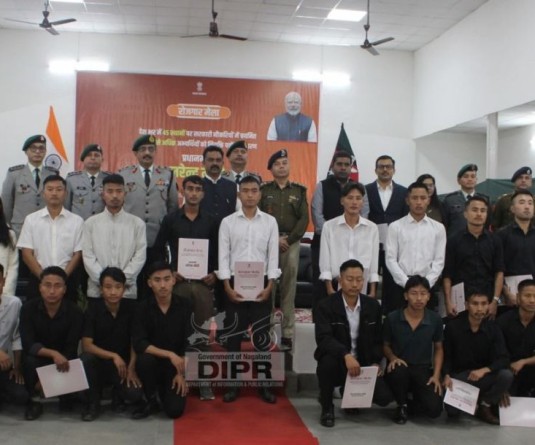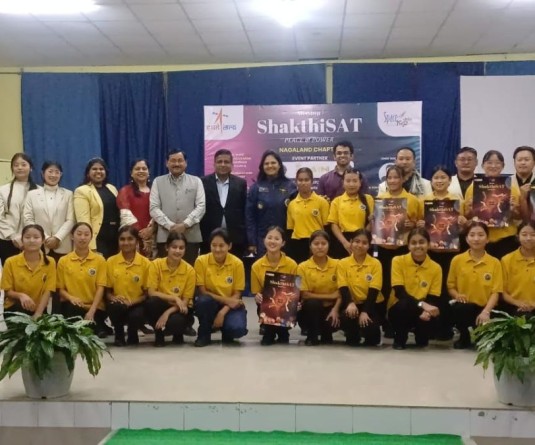
Kohima, October 9 (MExN): The Nagaland Voluntary Consumers’ Organisation (NVCO) which is celebrating RTI Week from October 5 to 12, highlighted on the enactment of Right to Information (RTI) Bill and its implementation in Nagaland.
In a press release, the NVCO said that it had collaborated with the Nagaland Information Commission in 2015 and conducted a study on the use of RTI across the state and its impact in the last ten years. “The study was not intensive, however, NVCO did it by way of conducting awareness campaign, meeting and interview in almost all the districts in Nagaland covering colleges, district administration, civil societies, public organisations, women organisations, churches, etc, and also following the media reports as to how other organisations were contributing a role in promoting the RTI Act in the state by way of filing RTI applications, fighting against the illegality and short coming of procedures based on information/documents obtained through RTI and had initiated by way of filing Public Interest Litigation(PIL) before the Gauhati High Court and even to the Apex Court in the country,” it said.
Delving on the findings of the study, the release stated that the NVCO came across several individuals and organisations filing RTI application “just for the sake of filing as they do not read and study the information obtained through the powerful Act.”
It pointed out that the level of awareness in the district headquarters was low and even lower in villages. In this connection, it emphasized on the importance of creating awareness especially in rural areas where more disclosure is required in various schemes/projects meant for villagers, especially for citizens living the below poverty line (BPL).
The NVCO maintained that it came across “maximum misuse of funds in MNREGA, Public Distribution System (PDS), etc,” and said that citizens must learn RTI so that transparency and accountability can be questioned by obtaining information through RTI.
“We also came across that certain village authorities had fined their citizens for filing RTI application without consulting village authorities and this is happening due to lack of awareness amongst the citizens,” it added.
Meanwhile, it appreciated the government departments for maintaining records or official documents much better with the implementation of the RTI Act in the state. “But when it come to the level of corrupt practices especially in public sectors we did not see any improvement rather it is becoming worse especially the amount of money spent during State General Assembly Election,” it said. Along with this, it also said that there is not much improvement in public infrastructural developmental works along with much illegality in spending public funds by not following the norms and procedures, and illegal deduction of certain percentages in the name of ‘commission’.
Further, it said that the government had conducted several training for government employees especially the PIOs and APIOs but did not bother to take up any initiatives towards creating awareness among the general public. It lamented that many PIOs and APIOs do not encourage the RTI applicants but rather have negative attitude towards them. Many of them take advantage of the one month period although the information can be furnished within a few days time, it maintained, adding that “delaying of furnishing the required information is affecting the applicant where he/she is seeking a stay order from the courts especially in the issue of awarding work order in the contract works without following certain required norms.”
The maximum RTI applications filed in various departments may be related to recruitment of jobs in public sector (backdoor appointments), contract works, and so on, the NVCO said.
Stating that ‘Information is power,’ the NVCO underlined that with help of Right to Information Act, 2005, citizens can bring a positive change in the society with every citizen using the Act as a tool for transparency and accountable governance.






